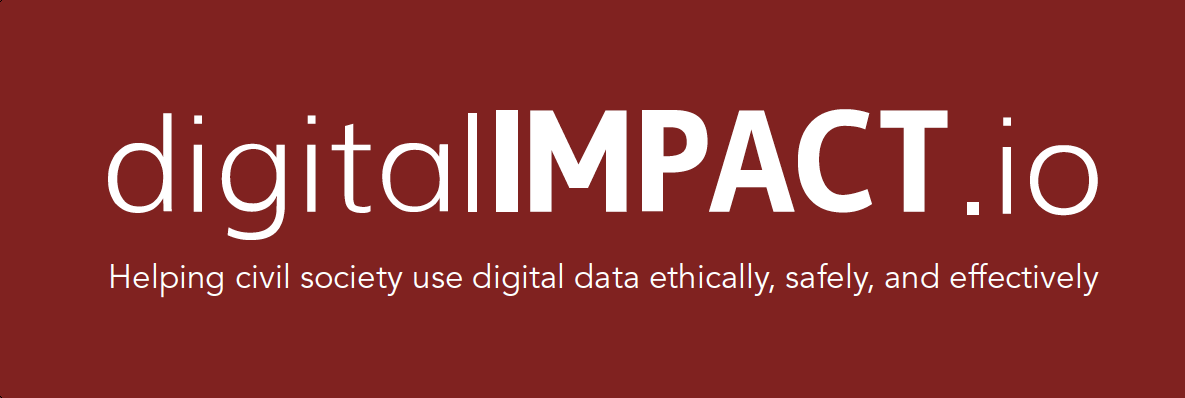A new collaboration is set to help nonprofits and foundations co-create and share practices for implementing digital data for good.

The Markets for Good team at Stanford PACS Digital Civil Society Lab is pleased to announce the launch of a new project to help nonprofits and foundations co-create and share practices for using digital data in line with their missions. We believe these practices, policies, and tools need to be invented by the sector, for the sector. So we’ve created a hub of materials to get this capacity building effort started: the digitalIMPACT project.
The project has two parts – a website and a set of community partnerships. The digitalMPACT.io website offers three types of information:
- Easy-to-understand explanations of how and why digital data are different from time and money, (the assets that nonprofits are used to managing), and why that matters;
- A guide to the type of governance decisions that organizations need to consider to manage their digital data ethically, safely, and effectively – and policy templates to help inform their choices; and
- Tools, such as checklists and guidelines, designed by and for nonprofits to inform their use of digital data.
Civil society organizations already collect and use data from individuals toward achievement of their mission. We built this new tool primarily to support civil society in developing and sharing practices for the safe, ethical, and effective use of such digital data.
All of the materials on digitalIMPACT.io are guided by a set of principles derived from the nature of civil society. These are called out on the site as the “Three Principles” of using digital data ethically, safely, and effectively. The Three Principles are informed by a definition of civil society as the place where we voluntarily use our private resources for public purpose.
The Three Principles are:
- Consent – digital data use must be voluntary and informed;
- Minimal viable data collection – data belongs to those who contribute it, and the organization should default to practices that prioritize that privacy. Given the poor quality of data security, this means not collecting what you can’t protect; and
- Openness – in pursuit of public benefit, the default position for what is learned should be to open it and share it (which depends on the integrity with which the data were contributed – consent) and the donor’s privacy protected.
The digitalIMPACT.io site was built and is maintained by the Digital Civil Society Lab at Stanford University’s Center on Philanthropy and Civil Society (also home to Markets For Good). Materials on the site have been contributed by an ever-expanding network of nonprofit and foundation partners and are available for free download and use.
The digitalIMPACT.io site is just the first part of the project. Building from the website, we will be conducting workshops and demos, seeking to co-create materials with and for specific functional areas of work, with affinity groups, and for global actors. We are eager to create working groups, task forces, user testing, and alliances with existing networks. Contributions of materials are welcome and can be submitted directly through the site.
Please use the contact form on digitalIMPACT.io to get in touch, to share or request materials, and to inquire about ways we might work together.
